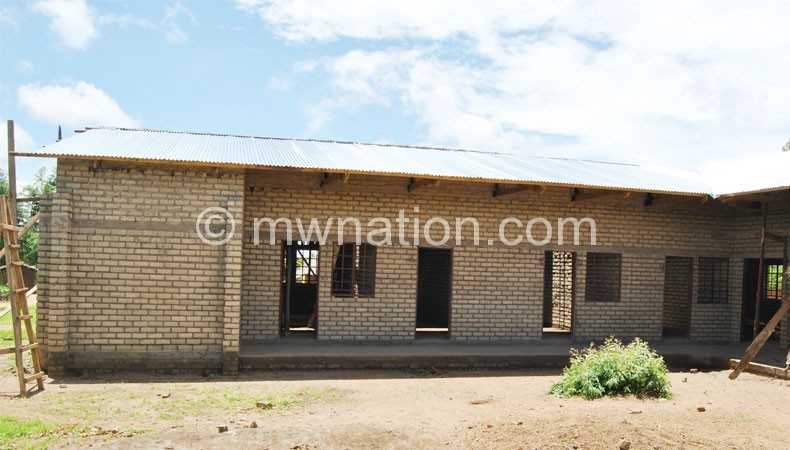Raising hope for better ECD in Malawi

Research conducted by experts in Early Childhood Development (ECD) shows that children who attend quality ECD training provided by professional caregivers do better in school.
In the past, it was mostly in urban areas where children had the chance to access professional ECD training in nursery schools. But today, even children in rural areas are able to have some ECD training following the establishment of nursery schools. However, the future of quality ECD training in Malawi still looks bleak as most of the requirements have not been met.
In rural areas, ECD centres are characterised by poor learning infrastructure and lack of trained teachers and teaching curriculum.
Matache Village in Traditional Authority Mposa in Machinga is one of those areas that had poor learning shelters for ECD training. The house in which children used to learn was grass-thatched and leaking, with cracked walls.
Dorothy Rashid, whose child goes to the Matache ECD centre, says although she sent her children to the centre, she was not confident of the safety.
“We were hesitant to send our children to school looking at the condition of the building that our children were learning in. Misery loomed during the rainy season. Our children would be sent back home because the classroom was a risk in the event of heavy rains,” says Rashid.
Today, the problem is history following the construction of a building which has five rooms for the ECD centre.
The building, which is an initiative of some well-wishers, has three learning rooms, a library, a rest room and a conference room where meetings by the community or the ECD committee will be held.
Stammering with joy, Rashid says they would now gladly send their children to school knowing that they are safe.
“I am grateful to the generosity of the people behind this job. The lives of our children were endangered, but today we can proudly send our children to school because the buildings are much better,” says Rashid.
The building has not just brought relief to the parents, but the teachers as well.
Timverane ECD caregiver Esther Laja remembers the problems she would have teaching children of different ages in one class at the same time.
“Children of different ages grasp issues differently. Since the new building has several rooms, we are able to separate the children according to their age and they will have the chance to enjoy the lessons and interact well with us teachers,” says Laja.
Similarly, 32 caregivers have recently been trained in Chikhwawa to ensure that children get quality ECD education.
Chikhwawa District commissioner Alex M’doko says the training came at the right time when the government is emphasising the need to improve education standards through ECD in the country.
He says the training, which has equipped the caregivers with better and professional methods of teaching, ensures improved quality of education bearing in mind that children will be taught by experts.
Evelyn Jombo, one of the trained caregivers, says: “With this training, I will surely deliver better lessons and help the children understand and enjoy lessons better than before,” said Jombo.
She said the training will also help them convince parents on the importance of enrolling children in ECD centres.
“We had problems making parents understand the benefits of sending children to school, but the training will help us in that area,” said Jombo.
World Vision Malawi programme manager for Chikhwawa Arnold Tsalayekha says their organisation understands the importance of ECD and that is why they strive to provide the best for children.
He said the training will help assist government in the provision of quality education to children bearing in mind that there are just a few trained caregivers in Malawi.
“Research done by our team revealed that only six out of 100 children attend ECD training, and that there are only a few trained caregivers. This is why we came in to build a good foundation for our children for a better Malawi,” said Tsalayenkha.





